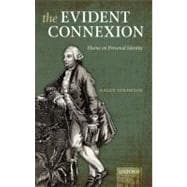
Note: Supplemental materials are not guaranteed with Rental or Used book purchases.
Purchase Benefits
What is included with this book?
| Preface | p. vii |
| Acknowledgements | p. ix |
| Epistemology, Semantics, and Ontology | |
| The necessity of metaphysics | p. 1 |
| The [E]-[S]-[O] move | p. 13 |
| The [E]-[S]-[O] move and physical objects | p. 16 |
| Hume's definitions of cause | p. 21 |
| Hume's Philo | p. 27 |
| Hume and Wittgenstein | p. 30 |
| Mind, Self, and Person | |
| Introduction | p. 33 |
| 'Perception', 'experience' | p. 37 |
| 'An experience is impossible without an experiencer' | p. 40 |
| Epistemology, semantics, ontology, and the self | p. 46 |
| Where is Hume? | p. 53 |
| Mental geography; the science of man | p. 55 |
| Mind and cause: a comparison | p. 61 |
| Three theses | p. 63 |
| Berkeley's bundle | p. 66 |
| The Simple Fiction view | p. 68 |
| The Vegetable Fiction view | p. 68 |
| The Outright Bundle view | p. 71 |
| Where is Hume? | p. 73 |
| 'When I enter most intimately into what I call myself' 1 | p. 74 |
| 'When I enter most intimately into what I call myself' 2 | p. 84 |
| Awareness of awareness; self-awareness | p. 88 |
| Is Hume right about intimate entrance? | p. 94 |
| Hume and James | p. 95 |
| The brain | p. 97 |
| Hume's Appendix | |
| What is Hume's problem? | p. 101 |
| Real continuity | p. 108 |
| Sources of confusion | p. 112 |
| The I-Principles | p. 114 |
| Bundles are just bundles | p. 118 |
| Garrett's objection | p. 121 |
| Placeless perceptions | p. 122 |
| Unity and connection, real and Imaginary | p. 129 |
| Interim summary | p. 132 |
| The Problem of Detail | p. 135 |
| Type-token trouble | p. 138 |
| Variation 1: the Identity Feeling | p. 142 |
| Variation 2: the One and the Many | p. 144 |
| 'Explain'? | p. 147 |
| Reprise | p. 152 |
| Was Hume unclear? | p. 154 |
| References | p. 157 |
| Index | p. 163 |
| Table of Contents provided by Ingram. All Rights Reserved. |
The New copy of this book will include any supplemental materials advertised. Please check the title of the book to determine if it should include any access cards, study guides, lab manuals, CDs, etc.
The Used, Rental and eBook copies of this book are not guaranteed to include any supplemental materials. Typically, only the book itself is included. This is true even if the title states it includes any access cards, study guides, lab manuals, CDs, etc.